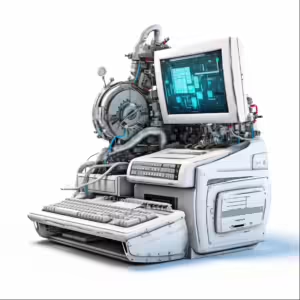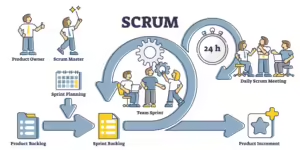Modern programming languages: The tools of contemporary software development
Modern programming languages play a crucial role in the world of software development. Not only are they the foundation for creating software and applications, but they are also a reflection of the ever-evolving technology landscape. This article provides an overview of some of the most important modern programming languages, their characteristics and areas of application.
Key features of modern programming languages
Modern programming languages are characterized by a number of properties that make them efficient, accessible and versatile:
- Simplicity and Readability: Clear syntax and structure to improve code readability and maintainability.
- Efficiency: Ability to develop high-performance applications with optimal use of resources.
- Support for various programming paradigms: object-oriented, functional and procedural paradigms.
- Platform independence: Ability to function in different environments and operating systems.
- Strong community and libraries: Extensive support from developer communities and rich libraries.
Popular modern programming languages
- Python: Known for its simple syntax, Python is widely used in web development, data science, AI, and machine learning.
- JavaScript: A key language for web development, both client and server side (Node.js).
- Java: Because of its platform independence and power, Java is a popular choice for enterprise applications and Android app development.
- C#: Developed by Microsoft, C# is a major component in the .NET framework and is widely used in enterprise environments and for game development.
- Go (Golang): Developed by Google, Go is known for its efficiency and performance, especially in cloud and network applications.
- Kotlin: Increasingly used as an alternative to Java for Android app development, it stands out for its clean syntax.
- Swift: Apple's language for developing iOS and macOS applications, known for its security and speed.
- Rust: Known for its memory security, Rust is widely used in systems programming and for high-performance applications.
- TypeScript: A superset of JavaScript that adds static typing to make developing large applications easier.
Areas of application of modern programming languages
- Web Development: For both frontend and backend development.
- Mobile App Development: Creating applications for Android, iOS and other mobile platforms.
- Enterprise Applications: Development of scalable and secure business applications.
- Game Development: From indie games to major game consoles.
- Data science and AI: For analyzing large amounts of data and developing intelligent systems.
Conclusion
Modern programming languages are the backbone of today's software development. They enable developers to create innovative applications and systems that meet a wide range of needs and requirements. Choosing the right language depends on various factors, including the type of project, preferred platform, available libraries, and the developer's personal experience. As technology continues to evolve, these languages will continue to grow and adapt to meet the challenges and opportunities of the digital world.






